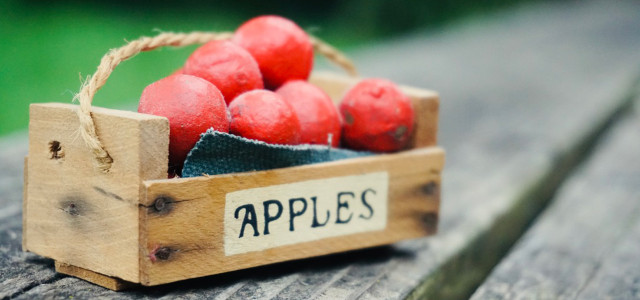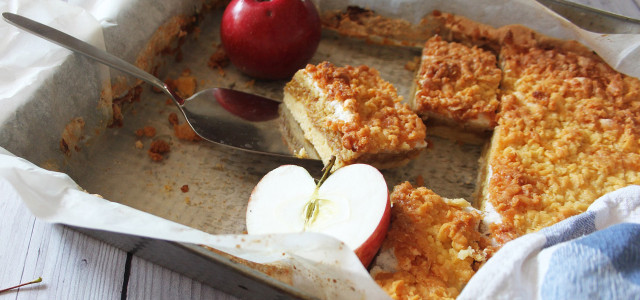Here are some tips and tricks on how to store apples to keep them fresh longer. Correct storage will make apples last up to a couple of months.
Storing Apples Correctly: Why is it Important?
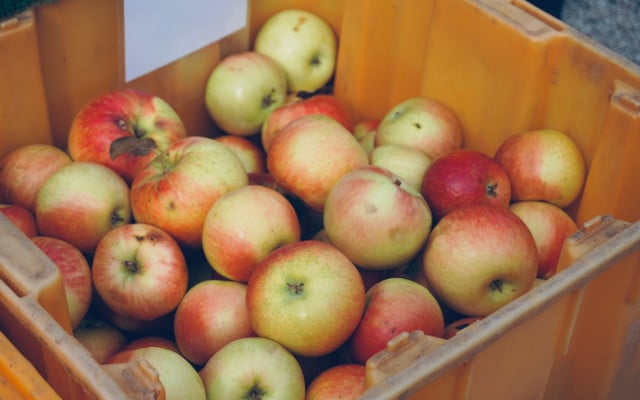
Apples begin to ripe the minute they’re picked from the tree. This changes the chemical makeup of the fruit. Storing apples incorrectly can leave you with overripe, rotten or dried out fruit.
By storing apples correctly, you can keep these tasty treats fresh for longer. Also your efforts will reduce food waste, save money and benefit the environment. Storing food correctly will automatically lead to you buying less. This saves fuel and energy used in production and distribution. Keep in mind the following tips on how to store apples correctly:
Separate Apples from other Fruits
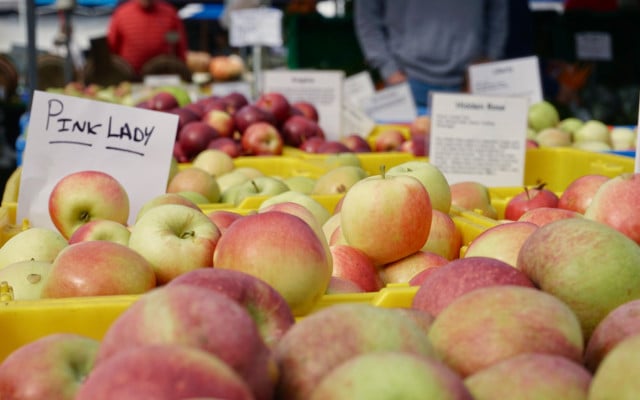


Those who have already put together a decorative fruit basket will know: apples, bananas, plums or pears ripen rather quickly when bunched up together. This will not happen, if you store apples the right way – we’ll show you how:
- Apples emit the plant hormone ethylene. This naturally occurring gas regulates the fruit’s growth and development as well as the speed at which these occur. Ethylene is released when apples begin to ripen or are damaged in some way, which in turn causes other fruits stored in close proximity to ripen or foul quicker. Potatoes are also affected when left together with apples – they shrivel and go bad. Rule of thumb: Always store apples separately!
- Be sure to keep apples in a cool and dark place – ideally in a storage room or basement. The vegetable drawer in your fridge is also a good place – just make sure not to store any other fruits or veggies along with them. Also be sure to keep your fridge at a moderate temperature as apples don’t do well with frost.
- If you happen to have some old plastic bags lying around, you can also put these to use when storing apples. The bags help retain moisture and prevent the apples from drying out too fast. Just don’t let too much moisture build up in the bags and you’re golden.
Bulk Apple Storage: How to store Apples in Winter
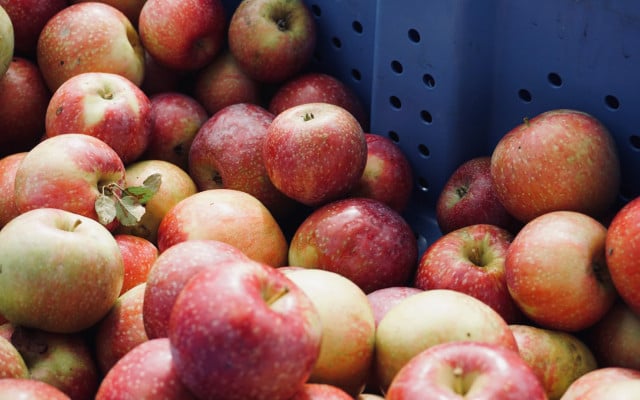


Consuming stored apples throughout the winter months is far more environmentally friendly than buying imported goods from abroad. But how to keep stored apples fresh for so long?
Here’s how it works:
- Find a cool and dark apple storage location with a consistent temperature – at best 37 – 39°F. Garages, sheds or basement storage rooms are well suited. Unheated hallways or cool pantries may also work under the right conditions.
- Remember to take the humidity of the room into account. If the air is too dry, the apples will dry out and shrivel. If this is the case, regularly place a bowl of water or cover the apples with a sheet of plastic with holes. Storing apples this way will retain moisture but also allow them to breathe.
- Make sure to allow for adequate ventilation so they do not grow mold. If you’re storing your apples in wooden crates, line each crate with only one layer of apples and make sure they’re not packed too tightly up against one another. The best crates to use for apples are those with openings in the sides and bottom.
- For those storing apples in a garden shed: protect your apples from frost and hungry rodents such as mice!
- Only choose well kept apples for stockpiling over the winter – that is, only those fruits without bruises or signs of rotting. Store apples with the stem attached.
Tip: Use bruised apples for homemade applesauce.
Read more:
- Plastic-Free Shopping: 3 Easy Tips for Waste Reduction
- Reuse Vegetable Scraps: Skip the Trash and put Food back on your Plate
- Healthy Grocery List: 6 Unhealthy Foods to Cross Out
This article was translated by Evan Binford. You can view the original here: Äpfel lagern: Das musst du beachten.
** Links to retailers marked with ** or underlined orange are partially partner links: If you buy here, you actively support Utopia.org, because we will receive a small part of the sales proceeds. More info.Do you like this post?






